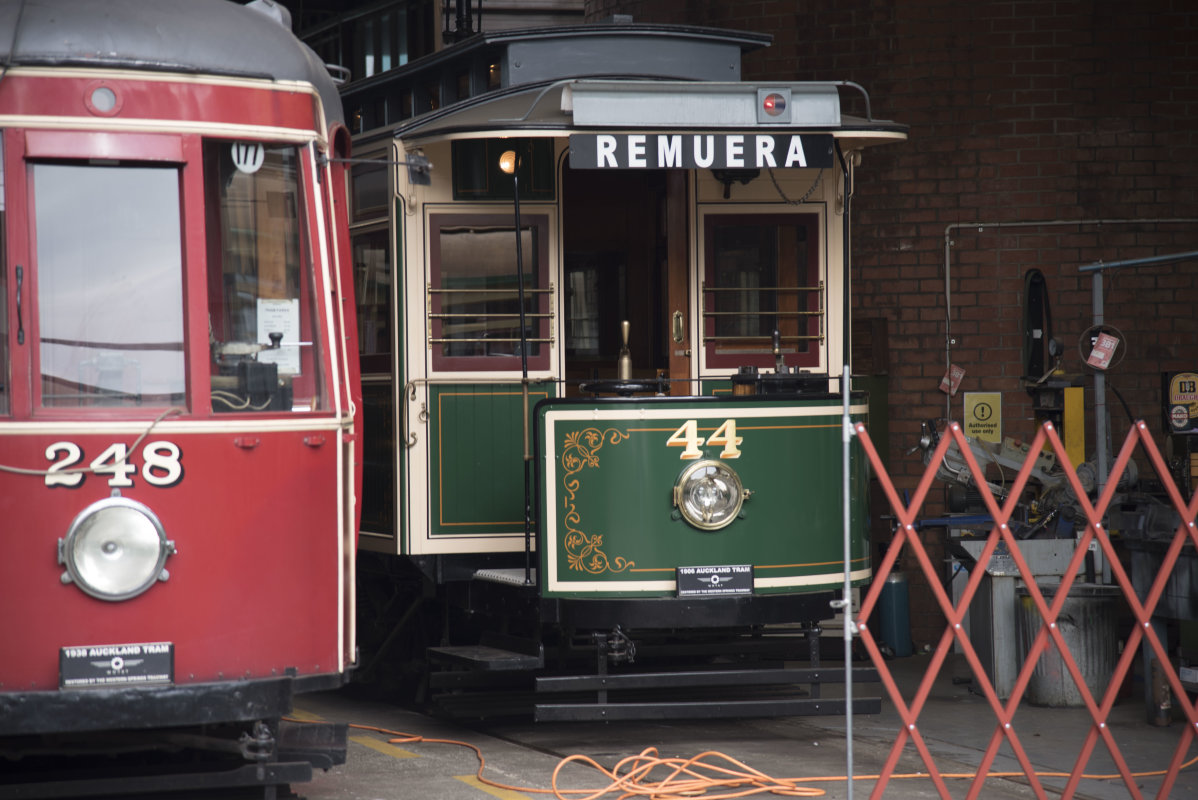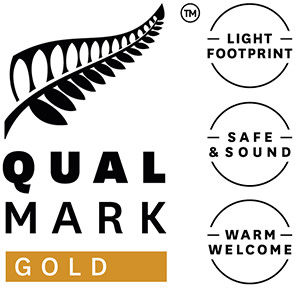Environmental Commitment

MOTAT is recognised as one of the country’s leading tourism operators by Qualmark, New Zealand Tourism’s official quality assurance agency. Our Qualmark Gold Sustainable Tourism Business Award recognises our exceptional customer experiences and integral sustainable practices. To earn this, the Museum underwent a comprehensive evaluation against industry standards of best practice. This required the organisation to be independently reviewed under criteria focused on the specific service, facilities, environmental practices, safety, and operating systems that the business has in place.
MOTAT has signed up to the New Zealand Tourism Sustainability Commitment, an initiative of the Tourism Industry Aotearoa (TIA). This aims to see every New Zealand tourism business committed to sustainability by 2025. Being sustainable includes environmentally, socially, and economically. In agreeing to adopt the commitment, MOTAT signs up to the 14 goals TIA has determined organisations should meet to achieve the vision of leading the world in sustainable tourism.

A major achievement for MOTAT is the Toitū Envirocare carbonreduce certification for measuring and reducing the Museum's carbon footprint. This accomplishment is evidence of MOTAT’s successful commitment to ongoing and continuous improvement with respect to the sustainability of its operations
We are currently working internally and externally to balance our transport history preservation with sustainability. We have a licence to burn coal in our pumphouse, boiler, and STEAM engines, and we offset our carbon emissions from these collection items. MOTAT recognises that to honour these pieces of Aotearoa history and still reach our carbon neutral aspirations, we need to improve in other areas of sustainability. This is an ongoing process, and our sustainability team is making changes regularly to help get us closer to this goal.
Following on from a Scion New Zealand-made biofuel trial in our Steam Tram 100 in October 2023, MOTAT has taken another step forward on the journey to become carbon neutral. Our Pumphouse operation is currently running on a biofuel, instead of coal. The briquettes are made from wood waste from a timber mill in New Zealand, which would otherwise go into landfill.
The timber is an imported hardwood and when heat and pressure is applied to the shavings and sawdust, dense briquettes with very low moisture content are created. This makes the briquettes calorific and long burning – so a suitable substitute for coal – creating enough energy for the boiler to power the collection items in the Pumphouse including the Beam Engine. The briquettes create lower emissions than coal and are a potentially renewable energy source.
Our preference would be to use fuel made from New Zealand forestry waste and would be open to trialling such products that have the potential to be made in commercial quantities.
MOTAT'S CURRENT ENVIRONMENTAL INITIATIVES
Little Flick is now an e-vehicle and we have installed solar panels and a charging station so ‘little Flick EV’ can be charged cleanly and sustainably.
The MOTAT team use several electric vehicles on site to help transport the teams around each of the two museum locations.
Recycling processes are in place for our polystyrene, batteries, and fluorescent tubes + paper, cardboard, and other recyclable materials.
We use recyclable and commercially compostable packaging in our gift shop and café.
Our cleaning teams use eco-friendly cleaning products across all our locations.
We’ve been harvesting rainwater from MOTAT’s rooftops for years. This water goes into our toilets and is used to water our gardens (we use trigger gun watering systems to help us reduce water use further).
Our bathroom facilities have been upgraded using sustainable principles, with sensor taps, dual-flush toilets and waterless urinals installed.
We use energy-efficient light bulbs and appliances and have lighting in our exhibition spaces on a sensor system. Our Environment and Sustainability Manager monitors energy usage through an online platform to understand where we can reduce our energy usage and to track the impact of energy reduction efforts.
We work hard to keep our exhibitions looking fresh and polished, but to minimise waste we upcycle or avoid landfill by donating or repurposing exhibition props whenever possible. (Switch Up: Sustainable Solutions is a great example of this).
To encourage sustainable travel amongst our team and visitors we’ve installed three Locky Dock e-bike charging stations.
Our new car park at M2 has turned a reclaimed landfill site into a usable space for visitors. As part of this construction, we’ve also included a cycleway linking to the existing pathways around the Western Springs Precinct.
